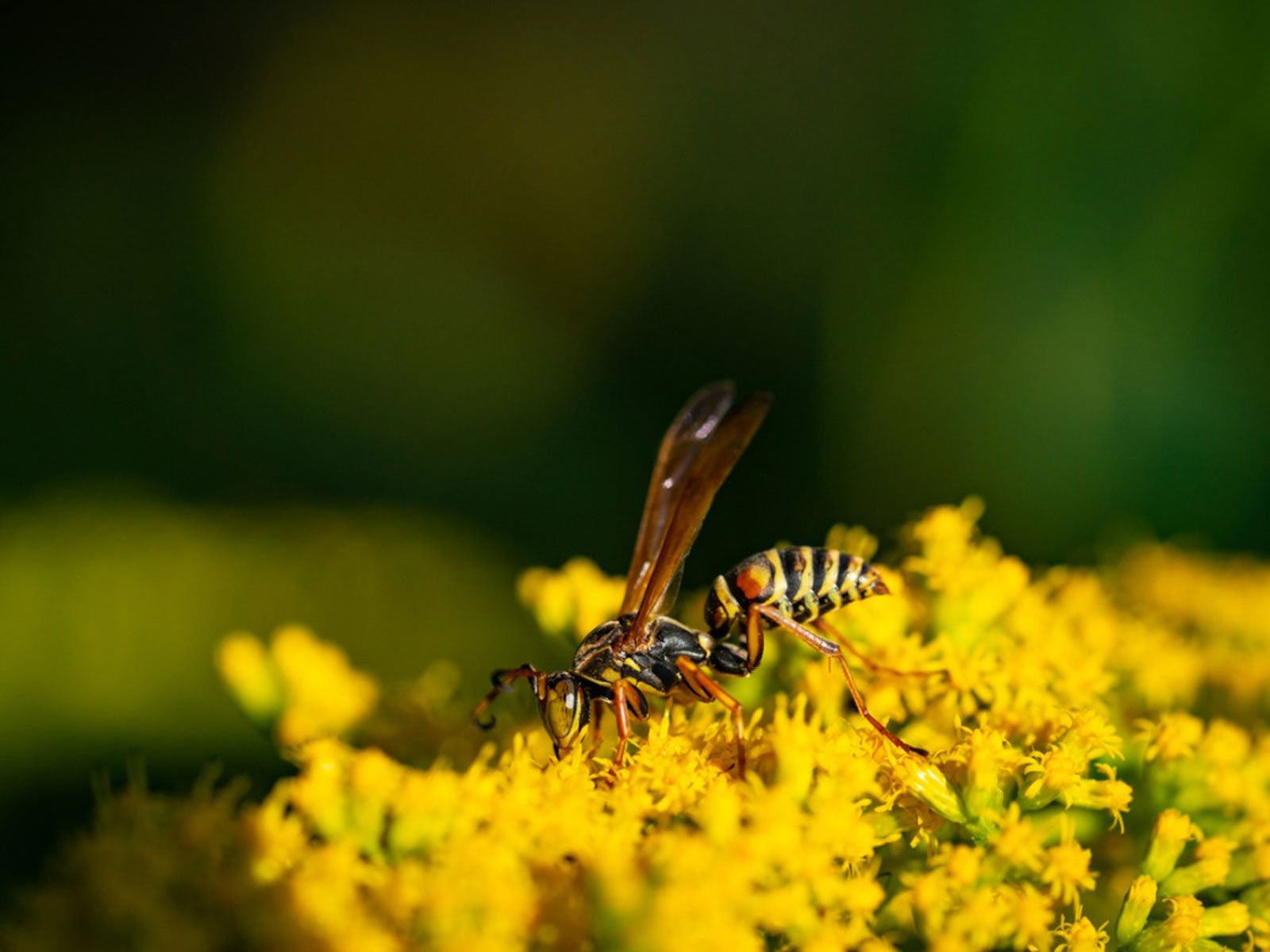Do Wasps Pollinate Flowers: Vital Role Of Wasps As Pollinators


If you've ever been stung by a wasp, you may vilify these creatures. Do wasps pollinate and help sustain our food supply though? They can do this and more. In addition to pollinating, wasps are also important predators that help keep the bad bug population down in our gardens. You might see them in a different light if you knew all the ways these stingers are beneficial.
Do Wasps Pollinate?
Are wasps pollinators? Wasps are sort of omnivorous in that they eat nectar, but they also eat insects and their larvae. Some wasps, like fig wasps, are the sole pollinator for a certain fruit. In spite of their potential to sting, we should think of pollinating wasps as a necessary organism for garden health.
Wasps are closely related to bees and are useful pollinators. It may be difficult to distinguish the difference between a wasp and a bee, but most wasps are fairly hairless, while bees sport plenty of fuzz. Many of our wasps have a characteristic slender waist, while bees are chubbier. Additionally, bees have rather stout little legs, while wasp legs are slender and dangling.
Social wasps are the varieties that do the most pollinating. Just as with a honeybee colony, social wasps live in a group led by a queen, with each insect performing specialized functions. By the end of summer, there are many workers but no longer larvae. It was the larvae that converted their protein rich diets into sugars for adults to eat. Around August, wasps are focused on nectar sources to supplement that lack of sugar.
Wasps as Pollinators
Wasps eat many insects and bring back a good portion to feed larvae. While some of their prey may be good bugs, most are pests. Some species of wasp also lay eggs on insect larvae, which hatch and feed on the organism. To supplement all this pollen, wasps also need sugar, which comes from flowers.
Most wasps have short tongues and look for shallow blooms. During feeding they inadvertently transfer pollen from flower to flower, effectively pollinating. Additionally, most wasps can't see the color red but can see UV light. That means they are more attracted to white and yellow blooms.
Encouraging Pollinating Wasps
Due to their beneficial nature, it is best to learn to live with wasps rather than kill them. Keep the area around your home clean and debris free to avoid the insects setting up housekeeping where your family eats and entertains. Pick fruit when it is ripe and rake away any wind fallen fruit which will rot and attract wasps.
Gardening tips, videos, info and more delivered right to your inbox!
Sign up for the Gardening Know How newsletter today and receive a free copy of our e-book "How to Grow Delicious Tomatoes".
You can keep wasps away from your space by providing them an attractive area apart, filled with items like banana peels and fruit rinds. Wasps are territorial and can be repelled by purchasing a look-a-like nest, such as the Waspinator. By keeping wasps away from your space, they will move farther afield and still visit your garden, providing their services to your flowers without bothering you.

Bonnie Grant is a professional landscaper with a Certification in Urban Gardening. She has been gardening and writing for 15 years. A former professional chef, she has a passion for edible landscaping.